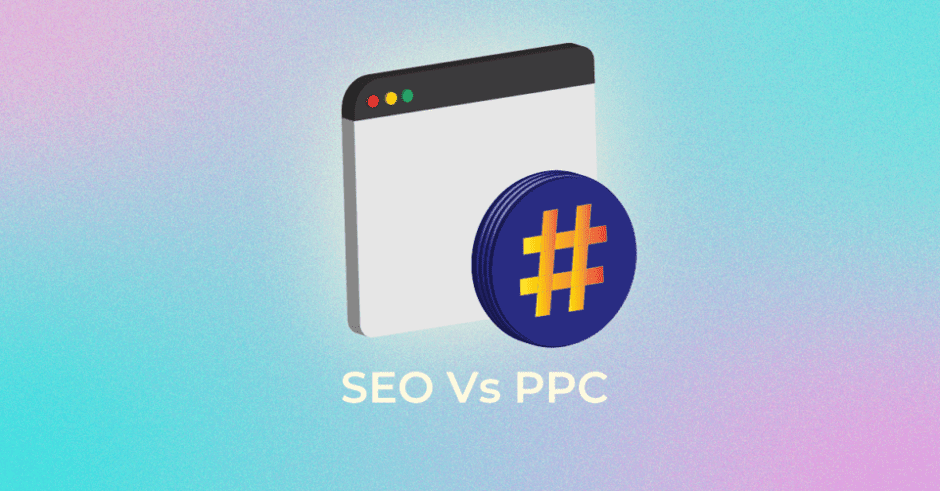Search engine optimization (SEO) and Pay-Per-Click (PPC) are two different online marketing tactics used to drive targeted traffic to websites. As the digital landscape continues to evolve and diversify, understanding the differences between SEO and PPC is key for businesses looking to maximize their online presence. This article will explore the unique advantages of each tactic and how they can be used in tandem to create successful campaigns.
What is SEO and PPC
Search engine optimization (SEO) and pay-per-click (PPC) are two of the most commonly used digital marketing tactics in the industry. They are both powerful tools that can help companies increase their visibility online, reach their target audience, and boost leads and conversions.
However, it’s important to understand the key differences between SEO and PPC so you can determine which strategy is right for your business. SEO is a long-term strategy focused on making improvements to your website’s content, structure, and code so that it ranks higher in search results organically. On the other hand, PPC requires businesses to bid on specific keywords or phrases to place ads on search engine advertising platforms such as Google Ads or Bing Ads.
Cost Comparison
When it comes to internet marketing, two of the most popular strategies are search engine optimization (SEO) and pay-per-click (PPC). While both offer advantages for businesses looking to increase their online presence, there are significant differences between them.
PPC is often seen as a more expensive option than SEO, but is there really a difference in cost? In this article, we will analyse the cost comparison between SEO and PPC so that you can make an informed decision about which one is best for your business.
The main difference between SEO and PPC lies in how the campaigns are priced. With SEO, businesses must invest in optimizing their website content to meet the standards set by search engines like Google. This typically involves paying agency or consultant fees to do keyword research and develop content tailored to specific keywords.
Time Investment
Time Investment is an important factor to consider when deciding between SEO and PPC. A key distinction between the two lies in the amount of time necessary for each approach. With SEO, you must invest a lot of time into optimizing content and analyzing website performance to see results. This can be a long process, as it often involves making changes or revising strategies over time to ensure success.
On the other hand, PPC provides almost instant visibility on search engine results pages (SERPs). You can start seeing your ads immediately after setting up an account with Google Ads or Bing Ads, but this comes at a cost—like most digital marketing tactics, you’ll need to pay per click.
Key Advantages & Disadvantages
Search engine optimization (SEO) and pay-per-click (PPC) are two digital marketing strategies that are used to drive traffic to websites and increase conversions. Both SEO and PPC have their advantages and disadvantages, depending on the goals of the advertiser. This article will examine the key differences between these two methods of online advertising, as well as the key advantages and disadvantages associated with each.
SEO is a long-term strategy that relies on organic search engine results to generate website traffic over an extended period of time. It focuses on optimizing web pages by improving content quality, keywords, titles, meta tags, etc., in order to increase visibility in organic search engine rankings. The main advantage of SEO is its ability to provide long-term results at a relatively low cost compared to other digital marketing strategies such as PPC.
Conclusion
The discussion of SEO and PPC has explored the key differences between these two digital marketing strategies. SEO is an organic search strategy that focuses on building a strong website presence through content creation, link building, and technical optimization. PPC is a paid search strategy that involves running targeted advertisements to draw in potential customers.
Both SEO and PPC have their benefits when it comes to reaching new customers online. The key to success with either approach is understanding which one better aligns with the business objectives of your organization.
Leveraging both strategies effectively can be beneficial for businesses looking to maximize their reach in the digital landscape. By understanding the pros and cons associated with each, businesses can make informed decisions about how best to optimize their digital marketing efforts for maximum returns.

As the editor of the blog, She curate insightful content that sparks curiosity and fosters learning. With a passion for storytelling and a keen eye for detail, she strive to bring diverse perspectives and engaging narratives to readers, ensuring every piece informs, inspires, and enriches.










